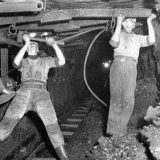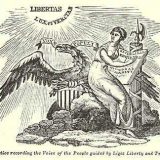Esto es un discurso y no a lo que estamos acostumbrados por aquí.
SECRETARY RICE: Thank you. Thank you very much. Madame President, other distinguished members here on the dais, and especially to Anne-Marie Slaughter who I know not just as a fine Dean of the Woodrow Wilson School but also as an extraordinary scholar whose expertise I’ve tapped on a couple of occasions since I’ve been Secretary, thank you for your leadership of this great university and your leadership in this great school.
I am honored to be here today at Princeton. From George Kennan and John Foster Dulles, to George Shultz and James Baker, and of course, Woodrow Wilson, many renowned American statesmen have worn the orange and black.
I am especially honored to help all of you celebrate this historic 75th anniversary of the Woodrow Wilson School. As a professor myself, I understand how important it is to root the practice of statecraft in the study of statecraft in the systematic examination of politics and history and culture that the Wilson School offers to its students.
Ladies and Gentlemen: Seventy-five years ago, when this school was founded, it was a difficult time when the world’s democracies were like islands in a raging sea. Adolph Hitler was planning his ascent to power in Germany and plotting his conquest of Europe. And Joseph Stalin was consolidating his rule and building a Soviet Union that would threaten the entire free world.
Today, however, democracies are emerging wherever and whenever the tides of oppression recede. As President Bush said in his Second Inaugural Address, «The best hope for peace in our world is the expansion of freedom in all the world.»
Now, to forge realistic policies from these idealistic principles, we must recognize that statecraft can assume two fundamentally different forms. In ordinary times, when existing ideas and institutions and alliances are adequate to the challenges of the day, the purpose of statecraft is to manage and sustain the established international order. But in extraordinary times, when the very terrain of history shifts beneath our feet and decades of human effort collapse into irrelevance, the mission of statecraft is to transform our institutions and partnerships to realize new purposes on the basis of enduring values.
Leer el resto: Princeton University’s Celebration of the 75th Anniversary Of the Woodrow Wilson School of Public and International Affairs





Un «lapidamujeres» es una persona que mata mujeres a pedradas.
Ollaarrocero es el funcionario cubano que disfruta de las ollas arroceras dde Fidel.
Luis,
Perdoname pero aprendi el espanol en Venezuela hace muchos anos. Que quiere decir «lapidamujeres» y «ollaarroceros»?
Con Steve «Flat Tax» Forbes de Vice.
¿Qué puedo decir?
Condi for President!
yomismo, de qué legalidad internacional hablas? de la de esa cueva de ladrones, asesinos de niños, lapidamujeres, ollaarroceros y sus cómplices que se sientan en la ONU, esperando cobrar suculentas comisiones de los fondos de ayuda internaciunal?
A esa te refieres?
Su discurso está muy bien. Pero el día que respete la legalidad internacional, podemos empezar a hablar de dar lecciones.